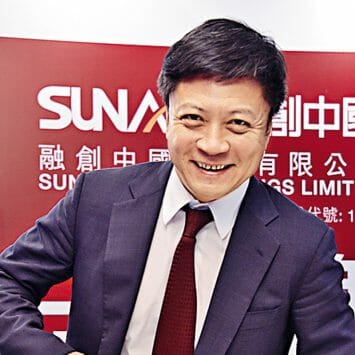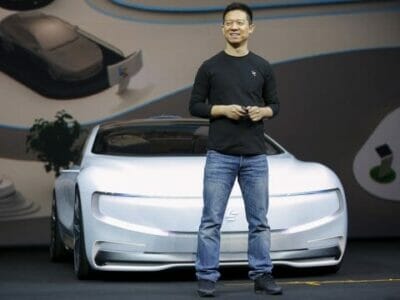
Sunac chairman Sun Hongbin goes after a high tech target
China’s seventh largest property developer now seems determined to be a player in the country’s high tech sector after Sunac Holdings chairman Sun Hongbin agreed to pay the equivalent of $2.2 billion for a stake in cash-strapped LeEco, according to a recent statement to the Hong Kong stock exchange.
Sunac Real Estate is buying minority stakes in LeEco’s Leshi Internet Information and Technology Corp, its Leshi Pictures film production unit and a 33.5 percent stake in LeEco’s Leshi Zhixin, which makes the company’s Internet TV systems.
Jia’s Dream Company Runs Short of Cash
LeEco, which was founded by mainland tech baron Jia Yueting, is often called the Netflix of China and had grown from its roots in Internet TV to build a debt-fueled empire that spanned self-driving electric cars, smart phones and California real estate.
In recent months, however, Jia’s dream business reportedly had trouble paying its bills.
Officials from the state of Nevada, which provided subsidies for the company’s $1 billion Faraday Future US car making facility gave their own take recently in the China Daily. “It’s clear Mr Jia doesn’t have any money, it’s clear that Leshi isn’t making money. That’s the reason for my concern,” Nevada state treasurer Dan Schwartz told the official mainland newspaper. Faraday had stopped work on the auto factory in November following complaints from creditors of unpaid bills.
Trading in Leshi Internet Information’s Shenzhen-listed shares was suspended for the second time last year on December 6th, after Jia told LeEco employees in a letter that the company had overextended its finances by expanding too quickly. Just over one week ago a mainland supplier to LeEco’s smartphone division sued the company for RMB 51.74 million in unpaid bills.
Leshi’s shares resumed trading today following the announcement of the Sunac investment. Sunac shares fell by as much as 10 percent today on the Hong Kong exchange.
Sun Has a Taste for Distress

LeEco’s Jia Yueting with the Faraday Future self-driving car concept
For Sun, LeEco’s distress provided the type of opportunity that the mainland developer has increasingly sought out as he built Sunac into a leading real estate player.
During China’s most recent real estate boom in 2015 and 2016 Sunac bought up projects from rival developers which had lesser access to financing, or were looking for an exit from the mainland’s increasing up and down real estate market. In September last year Sunac spent $2.1 billion to buy up 42 projects totalling more than 18 million square metres of industrial space from tech firm Legend Holdings.
That industrial deal followed just one month after Sunac spent RMB 4.4 billion (then $663 billion) to acquire seven projects in six Chinese cities, including developments in Shanghai, Hangzhou and Shenzhen, from Hong Kong-based competitor Top Spring International Holdings.
A History of Disastrous Deals
Despite his recent successful deals, Sun is probably best known for being repeatedly jilted at the acquisition altar.
In April 2015 Sunac lost out on a high profile bid to take over troubled real estate developer Kaisa Holdings after that Shenzhen-based builder defaulted on multiple credit obligations. The Kaisa deal fell apart after former chairman Kwok Yingshing was able to resolve an apparent conflict with the local government which had forced the developer into dire financial straits.
The Kaisa debacle was Sunac’s second thwarted takeover bid in six months after Sun’s attempt to take over Hangzhou-based Greentown China Holdings fell apart in November 2014. Greentown founder Song Weiping bailed out of that deal at the 13th hour, once the housing market began to rebound. State-run China Communications Construction Corp invested $775 million in Greentown less than one month after Song backed out of the deal with Sunac.
Sun also stumbled in a bid to take over indebted Yurun Holdings Group in September of 2015, after the meat processing company’s senior management apparently objected to the time and documentation required to complete the proposed acquisition.
Leave a Reply